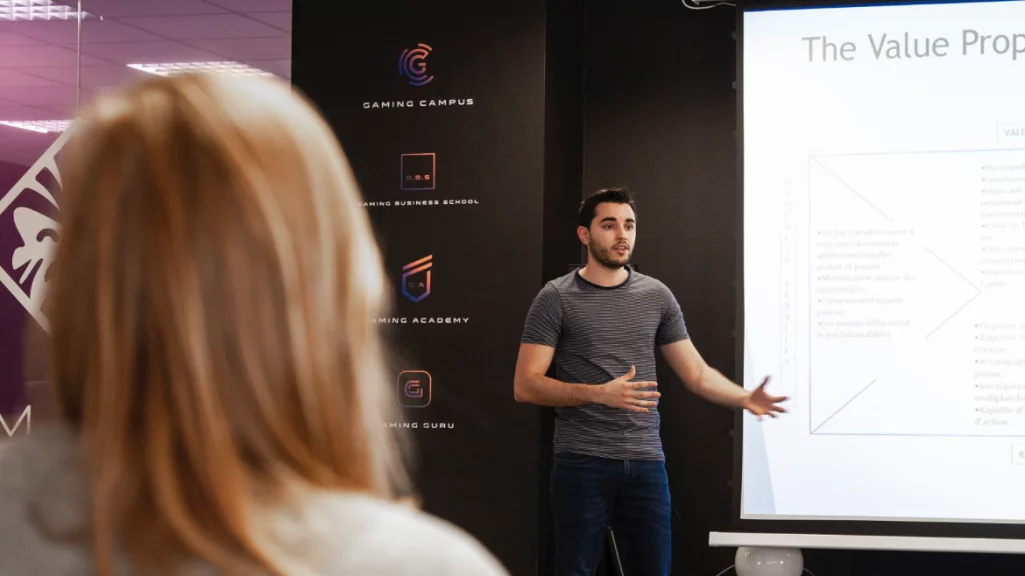Active pedagogy and project-based learning: what are we talking about ? What are the benefits for our students ?

A word from the General Manager of Gaming Campus, Valérie Dmitrovic
Valérie Dmitrovic directed a business school campus in Lyon, then was the National Director of Pedagogical Innovation and Development for 7 campuses within a large higher education group. A woman of conviction and field experience, she defends active and project-based teaching methods and interdisciplinarity.
Companies need the most creative people, capable of initiative, capable of learning and having relational skills such as “knowing how to work in a team”. However, changes in the world of education are not fast enough and suffer from the inertia of systems and behaviors, but also from gaps in the acquisition of new collective skills. In this context, what educational approaches can stimulate creativity, initiative and risk-taking to meet the challenges of the 21st century? How can we best train the younger generations and prepare them to become creative and collaborative? What model for the school of the future? Which pedagogical approaches should be favored? How to develop students’ talents and skills?
Our deep conviction is that we must implement a pedagogy adapted to the new reality, according to which a student will co-construct his or her course with us. His or her studies must provide a high value-added learning experience. The search for the acquisition of skills that will enable him/her to develop a lasting employability and a permanent adaptability.
For almost half a century, we have been experiencing an educational paradigm shift from a logic of transmission of knowledge by a teacher who is an expert in his or her subject to a logic centered on the learning of skills aimed at professionalization. Knowledge is easily available at any time and the development of MOOCs makes this access even easier. The challenge is therefore no longer to acquire knowledge but skills.
Project-based learning is an active pedagogy that allows learning through the realization of a concrete production. The project can be individual or collective.
What benefits for our students ?
More autonomy, motivation, ability to orient oneself towards a profession and to find a job, and the acquisition of life skills and competencies.
Why and how ?
Since the projects are very close to the situations that students will encounter in the workplace, they will be better prepared for the work world. In addition, group work has three main advantages: it creates motivation, supports the effort in case of obstacles; it confronts students with a complex situation or task; it develops collaborative and communicative skills specific to problem solving. Numerous studies show the benefits of project-based teaching: better integration of course content with the added bonus of methodological and relational know-how and skills to solve complex problems, improved motivation to learn and better cooperation between teachers.
All the elements are converging today to change pedagogical approaches: students need to be accompanied in the construction of their career path and to be given rich learning experiences; teachers want to rediscover the pleasure of practicing their profession and collaborating; companies and organizations need competent, creative employees capable of initiative. The search for pedagogical excellence is a major challenge. Project-based learning is a promising and ambitious response.
You can also consult the article available on Linkedin : Does project-based teaching have a future in France ?
